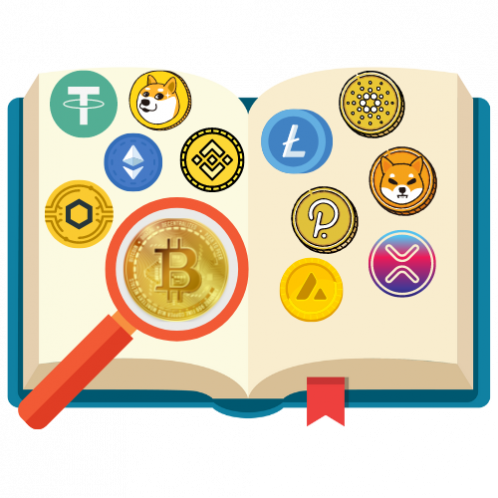Crypto Slang: The Definitive Top 10
At Books About Crypto, we believe that cryptocurrencies and blockchain technology are here to stay. Although some may argue otherwise, it is important to note that the concept of Bitcoin was first introduced in 2008, which may seem recent but in the rapidly evolving world of technology, it is a significant amount of time.
It is a fact that the adoption of blockchain and cryptocurrencies has slowed down. There are various reasons for this, but one of the main barriers for the general public to embrace this technology is a lack of understanding and trust. Similar to the early days of the internet, this may be due to the technical language and jargon used in the crypto community, which can be confusing for those who are not familiar with it. Additionally, the use of slang by younger individuals in the space can also make it difficult for older people to fully understand.
This brief, entertaining article aims to break down some of the commonly used terms in the crypto world by providing explanations for the Top 10 most frequently used crypto words and phrases currently in use.

1. Diamond Hands
"No way I'm selling! I've got diamond hands!!"
The phrase “diamond hands” is a metaphor that compares someone’s strength and determination to that of diamonds – the hardest substance known to mankind. Therefore, someone with diamond hands can hold on to anything for an extended period, regardless of how difficult the situation may be. In the crypto world, an investor with diamond hands is someone who holds on to their cryptocurrency investments for as long as necessary to reach their desired price, even if the value fluctuates in the interim.
2. DYOR
"Don't ask me! Do your own research."
DOYR is an acronym for “do your own research” and is often used as a warning or advice. In the crypto world, many experts advise individuals to conduct their own research before investing in cryptocurrencies. This is because many people rely on unqualified or uninformed opinions from social media contributors, leading them to make poor decisions. Additionally, DOYR is commonly used in community chats on platforms such as Twitter and Telegram, to remind people to stop seeking answers for questions that are either obvious or have already been answered.


3. FOMO
"Can't wait for all those retailers to FOMO in..."
FOMO, short for “fear of missing out,” refers to the psychological tendency of people to follow a trend out of fear of missing out on potential benefits. In the crypto world, this refers to individuals buying a particular cryptocurrency when its price is rapidly increasing, with the expectation that it will continue to rise. However, what often happens is that the individual buys near the peak of the trend, and when the price drops, they continue to hold on to the investment, resulting in a position that is worth less than the original purchase price.
4. FUD
" The price is only dripping 'cuz of all that FUD in the news"
FUD, an acronym for “fear, uncertainty, and dread,” is the opposite of FOMO. It refers to the spreading of negative information about a specific market or cryptocurrency with the intention of affecting its price. For instance, FUD could be spread by individuals who would benefit from a decrease in the value of a coin, such as those who have shorted it. By spreading negative news through social media, regardless of its authenticity, coin holders may believe the news, feel FUD, and sell some or all of their holdings. If enough people sell, the price of the coin could then decrease.


5. HODL
"I'm going to HODL for the long term."
The term “hodl” is often mistaken as an acronym for “hold on for dear life.” However, it is simply a typo of the word “hold.” It originated from an online post in 2013, when a Bitcoin investor stated that they intended to “hodl” their Bitcoins for a certain period. The term was then adopted by social media and has been used to refer to someone who holds onto their assets and does not sell them, for example, “I am a hodler of Ethereum.” It’s as straightforward as that.
6. Hopium
"There's a lot of hopium with BTC investors at present."
“Hopium” refers to a combination of desperation and unrealistic optimism that things will eventually improve. In the crypto world, it often refers to when an individual owns a coin that was bought after experiencing FOMO, and its value has dropped significantly, with little likelihood of recovery. In this scenario, the coin holder feels discouraged and worries about losing all of their money, yet they still hold on to unverified optimism (hopium) that the price will eventually rise again.


7. REKT
"Man, this bear market has rekt my wallet!!"
Rekt is a slang term that is a deliberately incorrect spelling of “wrecked,” and it refers to a situation where a coin or an individual’s portfolio has significantly decreased in value and is unlikely to recover in the short term.
8. Shill
"That last tweet was pure shill!"
Shill refers to the practice of using social media to disseminate positive information, whether true or not, about a coin, with the intent of persuading others to purchase it and increase its value. Individuals who engage in this practice are known as shillers, and the act of promoting a coin in this way is referred to as shilling.


9. Wen Lambo
"The price is always dopping. Wen Lambo man!?"
“Wen Lambo” is a phrase that represents the question “when will I be able to afford a Lamborghini sports car?”. The underlying meaning of this is when will the value of the coin(s) I am holding increase enough to make me wealthy? Wealth is often associated with the ability to buy a Lamborghini. This phrase can be used in different contexts, such as by those who are eagerly waiting for the price to go up, or by others who use it ironically to mock those who are desperately waiting for the price to increase.
10. Whale
"It's the whales that are manipulating the price."
In the crypto world, a whale is an individual or organization that holds a significant amount of a specific coin, such that by selling their holding, they can impact the coin’s market price. There isn’t a specific number or percentage of the coin that defines a whale, as it depends on various factors such as the coin’s market capitalization, current market activity, etc.

Parting Thoughts...
Since the release of Bitcoin’s whitepaper by Satoshi Nakamoto in 2008, blockchain technology has undergone constant evolution, resulting in the creation of thousands of cryptocurrencies. However, it’s worth noting that many of these have since disappeared. This progression is a natural occurrence seen in many different technologies over time, similar to the internet revolution of the 1980s and 1990s. Remember Archie, Altavista, and Ask Jeeves (just a few examples of the many “A”s)? The point is that with any new technology comes significant change, both in terms of functionality and the terminology associated with it. The above list is just a small sample of the new terms that the world is becoming familiar with.


